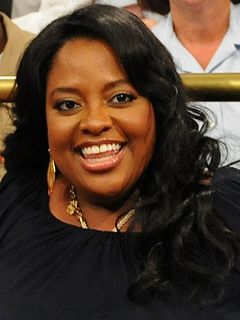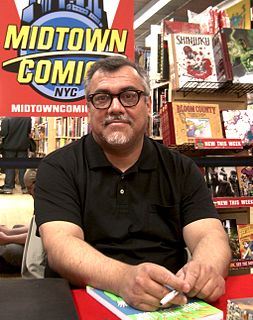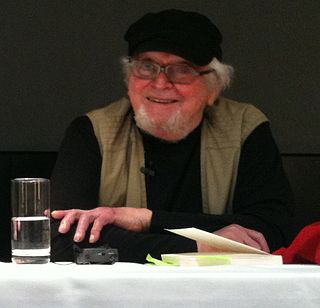A Quote by Steve Martin
Your only guidepost is your own instinct and judicious editing. In my stand-up act I learned that in the first 10 minutes I could say anything and it would get a laugh. Then I'd better deliver. In the movie it's the same thing. You get a lot of laughs when people first sit down and then the story better kick in. Many years in front of an audience, I would hope, give me a sense of what works.
Related Quotes
With me being in so many pain from when you have a betrayal from your best friend - who was my husband - and the girl got pregnant, I couldn't even get out of bed. The only thing that saved me was my stand-up. I would get on stage and just talk about stuff, and I made people laugh. A lot of women e-mail me and say, 'How do you smile? How do you laugh at something like this?' That's how I do it. I laugh because that's how I get through pain.
Writing helped to have jobs that involved running around, pushing things like dish carts and wheelbarrows. It would be hard to sit at a desk all day, and then come to sit at another desk. Also, it helps to abandon hope. If I sit at my computer, determined to write a New Yorker story I won't get beyond the first sentence. It's better to put no pressure on it. What would happen if I followed the previous sentence with this one, I'll think. If the eighth draft is torture, the first should be fun. At least if you're writing humor.
There are so many who know more than I do, who understand the world better than I do. I would be truly learned, a great scholar, if only I could retain everything I've learned from those I have known. But then would I still be me? And isn't all that only words? Words grow old, too; they change their meaning and their usage. They get sick just as we do; they die of their wounds and then they are relegated to the dust of dictionaries. And where am I in all this?
I just like to build. Don't get me wrong: I think stand-up is great, and when someone like Richard Pryor or Steve Martin does stand-up, there's nothing better in the world. But I don't want to watch a lot of stand-ups for two hours. So I can do 45 minutes of stand-up and then say, 'Can we do something else now?'
On the first one, X-Men: First Class, it would be James McAvoy, Nicholas Hoult and I. I'd basically inhale, there would be a red flashing light, and then the stuff at the end of the hallway would just blow up. It really felt like I could do those things, but, sadly, I can't. It was a lot of fun; I got to play a superhero that I was familiar with since I was a kid. It doesn't really get much better than that.
I have a lot of friends who were stand-ups, and they just stopped after a while, because they didn't like that battle, or they just couldn't do it. And then they would get on a sitcom and get visible and get back into it, because the audience was just way easier on them. But they lost those crucial years of learning to turn any audience into your audience.
What people who don't write don't understand is that they think you make up the line consciously — but you don't. It proceeds from your unconscious. So it's the same surprise to you when it emerges as it is to the audience when the comic says it. I don't think of the joke and then say it. I say it and then realize what I've said. And I laugh at it, because I'm hearing it for the first time myself.
The first thing I would say to young writers is, "Don't do it, unless you can't stand not to do it." And the second thing I would say is, "If you do do it, and get into it, the constant rule you should have in mind is to explore your material." It sounds simple, but it isn't, because people often want to get from A to B, and they don't stop to look at what is in the material.
I loved working in stand-up, and I always dreamed that I could make a movie about it. I didn't know if I would have the courage to, because if you make a bad movie about stand-up, then comedians will mock you for the rest of your life. They're still mad about movies made 25 years ago. But it was always a dream of mine, and I was glad I finally came up with an idea that allowed me to explore it in such a way that it's not all about stand-up, but stand-up creates a great backdrop for another type of story.
First of all, I wish everyone who loved football could stand in the quarterback's shoes just for a play, because I think it would be tremendously humbling to anyone who loved the game to say, "I didn't -- I had no idea." You can think about what it would be like, and the cameras are getting better at giving that perspective, that one that the skycam comes down and you get a sense of it, but you just -- you don't know.
The first time I ever performed spoken word poetry in front of a big crowd, it totally failed. It ended, people barely clapped...in retrospect the poem was terrible. And for a while I thought this was something I would never do again. And then I realized that, in my 17-year-old head, that was the worst it could have been. And it wasn't that bad - [because] from there, it could only get better. And I think that failure kind of freed me up to explore and not be afraid of failing again.
What do you have to do in life to get better? I would bet you would say study harder, or be more focused, be more determined, communicate better or try harder. But I would tell you just this, if you want to get better in this life the first thing you need to do is admit you're doing something wrong. It's the foundation of everything around us.


































